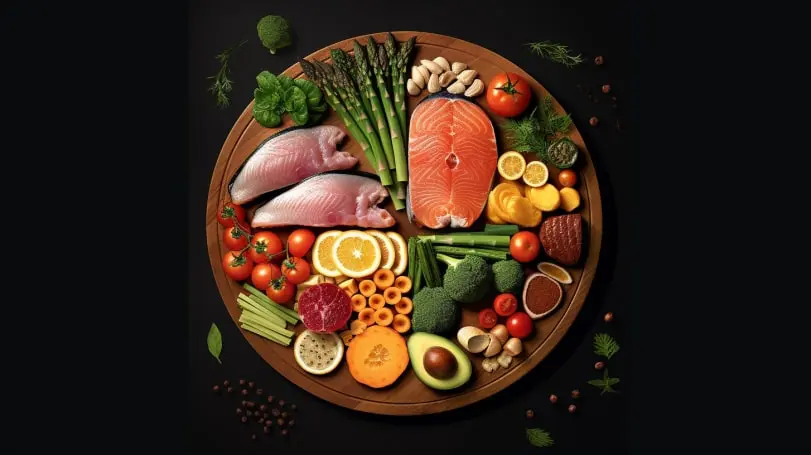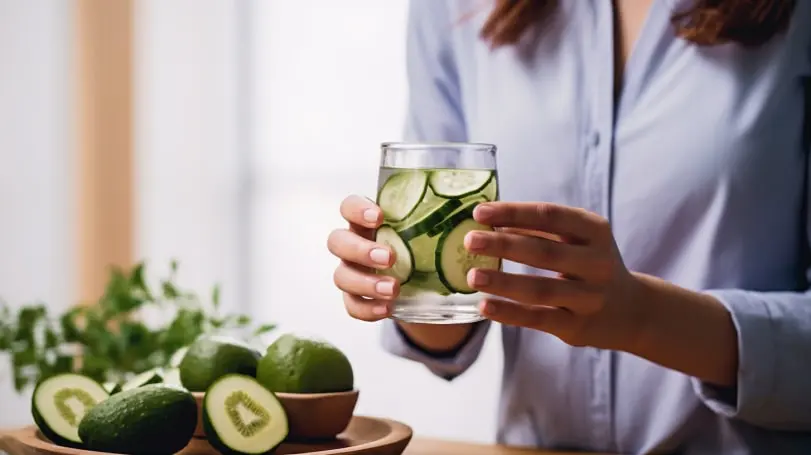Can You Drink Sprite With Pancreatitis?
Can You Drink Sprite With Pancreatitis? Discover the surprising truth about this popular fizzy beverage and its impact on pancreatitis patients.
While the short answer is yes but in moderation, there are important considerations and potential risks to be aware of.
By delving deeper into the topic, you’ll gain valuable insights into how Sprite and similar carbonated drinks may affect your pancreas and overall health.
In this article, we will explore the effects of Sprite on pancreatitis and provide essential insights to help you make informed decisions about your dietary choices.
Stay tuned to discover the potential benefits and risks associated with drinking Sprite while managing pancreatitis.
Key Takeaways
- Sprite is a high-sugar, acidic soda that can worsen symptoms for those with glucose intolerance or insulin resistance and irritate the digestive system lining, leading to inflammation and discomfort.
- Alternative beverage options such as water with lemon or cucumber slices, herbal teas like chamomile and ginger, and coconut water and unsweetened almond milk provide nutrients and reduce inflammation.
- Maintaining a low-fat diet can ease digestive distress, while regular exercise reduces stress levels and maintains a healthy weight.
- Alcohol consumption increases the risk of acute pancreatitis or worsening symptoms, and consulting with a healthcare professional is essential for an appropriate treatment plan. It is important to talk to a doctor about any concerns regarding pancreatic problems.
Understanding Pancreatitis and Its Symptoms
Pancreatitis is a medical condition characterized by inflammation of the pancreas, which can lead to symptoms such as abdominal pain, nausea, and vomiting.
The pancreas plays an important role in digestion, producing enzymes that help break down food in the small intestine.
When the pancreas becomes inflamed, these enzymes can leak into surrounding tissues and cause damage.

There are two types of pancreatitis: acute and chronic. Acute pancreatitis is a sudden onset of inflammation that typically resolves within a few days with treatment.
Chronic pancreatitis is a long-term condition that causes permanent damage to the organ.
Prevention measures for pancreatitis include:
- Avoiding alcohol consumption or limiting it to moderate levels (no more than one drink per day for women and no more than two drinks per day for men)
- Maintaining a healthy weight
- Managing high blood pressure and high cholesterol levels
- Quitting smoking if you smoke
- Avoiding certain medications that can increase your risk of developing this condition
Risk factors for developing pancreatitis include:
- Heavy alcohol use
- Gallstones
- High triglyceride levels in the blood
- Family history of the disease
- Certain medications (such as steroids or diuretics)
- Infections like mumps or hepatitis B or C viruses
- Abdominal injuries or surgeries
It’s important to talk to your doctor about any concerns you may have regarding your risk for developing pancreatic problems.
The Role of Diet in Managing Pancreatitis
The dietary approach to managing pancreatitis is a crucial aspect of its treatment, with a particular emphasis on nutrient-dense foods and avoidance of triggers.
A guide to healthy eating for pancreatitis patients involves consuming small, frequent meals that are low in fat and high in protein.

Patients should opt for lean meats such as chicken or fish, whole grains, fruits and vegetables, and healthy fats like olive oil and nuts. It is also important to limit sugar intake as it may cause inflammation.
Pancreatitis and alcohol have an intricate relationship. Alcohol consumption can lead to acute pancreatitis which can progress to chronic pancreatitis over time.
If you have been diagnosed with pancreatitis, it is recommended that you abstain from alcohol altogether as it may exacerbate the condition.
In addition, avoiding processed foods, fried foods, caffeine, and spicy foods can also be beneficial in reducing symptoms associated with pancreatitis.
Following a strict diet plan can help manage the symptoms of this condition effectively while improving overall health outcomes for patients.
The Ingredients in Sprite and Their Effect on Pancreatitis
One interesting statistic is that in 2019, Sprite was ranked as the tenth most popular soda brand in the United States, with over $1.2 billion in sales.

However, for individuals with pancreatitis, the question remains whether or not they can safely consume this beverage.
When considering the ingredients of Sprite, it is important to note that its sugar content and acidity levels are potential concerns for those with pancreatic issues.
A 12-ounce can of Sprite contains approximately 38 grams of sugar and has a pH level between 3 and 4 (considered acidic).
This high sugar content can lead to increased blood glucose levels and may worsen symptoms for people with glucose intolerance or insulin resistance.
Additionally, acidic drinks like Sprite can irritate the lining of the digestive system, leading to inflammation and discomfort.
For individuals with pancreatitis who are looking to manage their symptoms through diet modification alone, it may be best to avoid beverages like Sprite altogether or consider taking pancreatic enzyme supplements before consuming sugary or acidic drinks.
| Ingredient | Description | Potential impact on Pancreatitis | ||
|---|---|---|---|---|
| High Fructose Corn Syrup | A type of sweetener commonly used in soft drinks. | Can contribute to elevated blood glucose levels. | ||
| Citric Acid | An organic acid found naturally in citrus fruits. | May cause irritation and inflammation in the digestive tract due to its acidic nature. | ||
| Carbonated Water | Water infused with carbon dioxide gas. | May increase pressure on the digestive system causing discomfort for some individuals with pancreatitis. | ||
| Natural Flavors | Flavor compounds derived from natural sources such as fruit extracts. | Typically safe but could potentially contain allergens or irritants depending on individual sensitivities. | ||
| Sodium Benzoate | A preservative commonly used in food products. | Generally considered safe but could potentially cause allergic reactions for some individuals. | When used in combination with ascorbic acid (vitamin C), sodium benzoate can form benzene, a carcinogen, although this risk is low in the quantities typically used in food products. |
Alternatives to Sprite for Pancreatitis Patients
Consideration of alternative beverage options may be beneficial for individuals managing pancreatic symptoms through diet modification, as certain drinks can exacerbate discomfort and inflammation.
When it comes to healthy hydration, low sugar options are preferable for pancreatitis patients.
Sugary drinks like Sprite should be avoided as they can trigger the release of digestive enzymes from the pancreas, leading to further inflammation and pain.

Fortunately, there are plenty of flavor alternatives available for those looking to switch up their drink choices.
Water with lemon or cucumber slices is a refreshing option that provides a subtle hint of flavor without any added sugars.
Herbal teas such as chamomile or ginger tea are also great low-sugar alternatives that have been shown to reduce inflammation in the body.
Coconut water and unsweetened almond milk can add variety to your beverage routine while providing essential nutrients like potassium and calcium.
By choosing these healthier hydration options over sugary drinks like Sprite, individuals with pancreatitis can help manage their symptoms more effectively while still enjoying flavorful beverages.
Tips for Managing Pancreatitis Symptoms
Managing symptoms of pancreatitis can be challenging, but incorporating simple lifestyle modifications such as a low-fat diet and regular exercise can help alleviate discomfort and improve overall health.
Natural remedies like herbal teas and supplements may also provide relief from pain and inflammation associated with pancreatitis.

However, it is important to consult with a healthcare professional before starting any new treatment regimen.
Here are some tips for managing symptoms of pancreatitis through lifestyle changes:
- Follow a low-fat diet: Eating foods that are high in fat can aggravate pancreatitis symptoms. A low-fat diet that is rich in fruits, vegetables, whole grains, lean protein sources like fish or chicken can help ease digestive distress.
- Stay active: Regular exercise not only helps to maintain a healthy weight but also reduces stress levels which can exacerbate pancreatitis symptoms.
- Manage stress: Stress triggers the release of hormones that can worsen inflammation and pain associated with pancreatitis. Practicing relaxation techniques like meditation or deep breathing exercises may help manage stress levels.
- Avoid alcohol consumption: Alcohol consumption has been linked to an increased risk of developing acute pancreatitis or worsening existing symptoms so it is best to avoid it altogether if possible.
Seeking Medical Advice for Pancreatitis Treatment
Consulting with a healthcare professional is essential for determining the appropriate medical treatment plan to alleviate symptoms and manage complications of this inflammatory condition.
Pancreatitis can be acute or chronic, with varying severity levels that require different approaches to management.
Medical consultation is necessary for proper diagnosis, evaluation of symptoms, and identification of underlying causes.
In addition to medical treatment, lifestyle changes are often recommended for individuals with pancreatitis.
These may include avoiding alcohol consumption, adopting a low-fat diet, quitting smoking, and managing blood sugar levels if diabetes is present.
A healthcare professional can provide guidance on making these modifications and ensuring they are effective in reducing symptoms and improving overall health.
Regular follow-up appointments are also important to monitor progress and make any necessary adjustments to the treatment plan.
Ultimately, seeking medical advice can help individuals with pancreatitis achieve better outcomes and improve their quality of life.
| PROS | CONS |
|---|---|
| Access to expert knowledge | High cost |
| Personalized care | Long wait times |
| Improved disease management | Time-consuming appointments |
Making Informed Choices for Pancreatitis Management
In conclusion, informed decision-making and adherence to medical advice are crucial for effective management of pancreatitis.
Patients with pancreatitis need to prioritize hydration as it can help prevent dehydration, which is a common complication of the condition.
Dehydration can worsen symptoms such as nausea, vomiting, and abdominal pain. Drinking plenty of water or clear fluids like broth and herbal tea can keep the body hydrated.
Another important aspect of pancreatitis management is limiting alcohol intake. Alcohol consumption can cause inflammation in the pancreas leading to acute or chronic pancreatitis.
Even moderate drinking can increase the risk of developing this condition or worsening an existing one.
Therefore, patients with pancreatitis should avoid alcohol altogether or limit their intake drastically to improve their health outcomes and quality of life.
Frequently Asked Questions
Can drinking Sprite worsen pancreatitis symptoms?
While Sprite may not directly worsen pancreatitis symptoms, the carbonation in soda can lead to discomfort and bloating. It’s advisable to seek alternatives and discuss long-term effects with a healthcare provider for proper management of pancreatitis.
Is it safe to consume other carbonated drinks besides Sprite with pancreatitis?
Consuming carbonated drinks with pancreatitis poses health risks due to their high sugar and acidity levels, which can worsen symptoms. Alternatives such as water, herbal tea, and coconut water are safer options for hydration.
Can consuming alcohol in moderation be okay with pancreatitis?
Moderate alcohol intake may be considered in pancreatitis management, but caution is advised. Alcohol can aggravate the condition and increase the risk of complications. Consult with a healthcare professional for guidance on alcohol consumption.
Can pancreatitis be completely cured with diet changes alone?
Pancreatitis management requires dietary restrictions, as diet plays a crucial role in controlling symptoms and preventing complications. While diet alone cannot cure pancreatitis, it can improve quality of life and reduce the risk of recurring attacks.
Is it possible for pancreatitis to go away on its own without medical treatment?
Pancreatitis can resolve spontaneously in some cases, but medical treatment is typically necessary for complete recovery. Natural remedies for pancreatitis may offer symptomatic relief, but should not be used as a substitute for medical care.
Conclusion
Pancreatitis is a serious medical condition that requires careful management, including dietary changes.
While it may be tempting to reach for drinks like Sprite, patients with pancreatitis need to carefully consider the ingredients and potential effects on their condition.
Consuming high amounts of sugar or carbonation can cause discomfort or exacerbate symptoms.
Fortunately, there are alternatives to Sprite that can still provide refreshing and enjoyable beverages without compromising a patient’s health.
Coconut water, herbal teas, and low-sugar fruit juices are all excellent choices for those with pancreatitis.
It’s important to remember that managing pancreatitis is an ongoing process and requires attention to detail in all aspects of life.
By making informed choices about diet and seeking medical advice when necessary, patients can take control of their condition and improve their quality of life.
As author Barbara Kingsolver once wrote, ‘The very least you can do in your life is figure out what you hope for.
And the most you can do is live inside that hope.’ For those with pancreatitis, this message rings true – by staying hopeful and proactive in managing their condition, they can find joy even amidst the challenges.
With careful consideration of their diet and lifestyle choices, patients with pancreatitis can lead fulfilling lives while keeping their health at the forefront.
